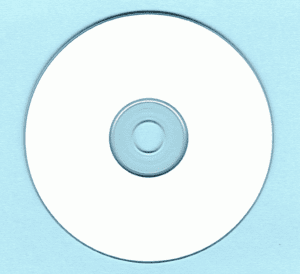So you’ve spent time learning to play an instrument, sing, write songs, record them, mix them, and put them online – but now you want to put out an album. A real one, that you can hold in your hands. Then it’s time to get your album pressed by the pros. The times they are a-changin’, though. Does anyone even buy CDs anymore? Is it worth the cost of manufacturing?
As someone who occasionally plays live shows, I can tell you that if you don’t have physical copies of your music for sale, you will be asked 100 times by 20 different people how they can find your music. As you lean close to their hairy ear and loudly recite your URL for the fourth time, you will regret not having a CD to slip into their cluttered purse to stop the questions.
Now it’s time to learn one of the rules of the universe. I’ll call it Lambert’s Law:
If you don’t have something to sell, people will probably want to buy it from you.
If you do have something to sell, people will probably not want to buy it from you.
Ask the box of t-shirts sitting in my mom’s garage. If you want a shirt with my name on it, and a retired logo from 5 albums ago, email me with your size.
But hey, that’s the gamble you’ve got to make sometimes. And here’s what I’ve learned: if you have CDs to sell, you can work hard to sell them, and probably get some people to check out your music. If you don’t have CDs to sell, you can’t. So let’s talk about how to get your album pressed to CD.
Do-It-Yourself
 This is a popular option, because it’s quick, easy, and doesn’t cost much. You can burn your album onto a CD in your own house, and hand it to someone in five minutes. Since most people don’t listen to music on CD anyway, they’ll likely just rip it into their media player of choice and lose the CD somewhere, so it’s practical and economical.
This is a popular option, because it’s quick, easy, and doesn’t cost much. You can burn your album onto a CD in your own house, and hand it to someone in five minutes. Since most people don’t listen to music on CD anyway, they’ll likely just rip it into their media player of choice and lose the CD somewhere, so it’s practical and economical.
The downside here is that your product doesn’t look very professional, and you probably can’t sell them in stores. It doesn’t mean you can’t make it work, but when someone hands you a CD in shrink-wrapping, with that impossible-to-tear barcode sticker on top, you’re a little more impressed than when they hand you a Memorex CD with Sharpie on it, aren’t you? Keep that in mind.
Semi-pro tip: If you do want to take this route for your release, maybe try ordering some plain white CDs with no logo on them. You can pass it off as ‘minimalist artwork’.
Discmakers

Discmakers have been around forever. They’re very user-friendly, and it’s easy to design
your whole album package right there on their website. They even have staff who will design your artwork for you, if
you’re not graphically inclined, and they offer mastering – the crucial final step of any serious release. They also make it incredibly easy and affordable to get your music on digital platforms like iTunes and Spotify, which can be a little confusing to do on your own.
In full disclosure, I stopped using Discmakers after they sent me 100 copies of one of my albums, with completely warped artwork printed on the discs. Kind of feels like someone who works in quality control should have looked at it and thought, ‘Hey, that’s not how normal things look… Maybe I should see if this matches the templates they sent’, but they didn’t. I have no ill will against them, and I still think they’re a great resource – but they also still send me mail addressed to my high school band after 11 years of me asking them to stop, so maybe they’re not as attentive as they could be.
Oasis

Oasis CD Manufacturing have been a little more professional than Discmakers, in my experience, and they offer many of the same great services. In addition to getting your music put on CD, a fun part of the process is deciding. Whether or not you’d like them in plastic jewel cases, cardboard sleeves, wallets or digipaks. I’ve tried one of each over the years, and I particularly like Oasis’ wallets, which have several different pocket variations to hold your booklet and disc. Their website isn’t quite as simple as Discmakers, but they’re easy to get on the phone, and will walk you through every detail of your project.
There are a number of other places that offer CD duplication: Pirates Press, Copycats Media, CDBaby. Find one that works for you. The most important thing is that they’re communicative and easy to get a hold of. Putting together an album package can be stressful work, and you don’t want to get 1000 CDs delivered to your house, only to find that they were printed upside down or with the songs out of order. Find someone who will talk to you and treat you like you matter. Don’t get a big head about this, but you are kind of the artist.

5 Comments